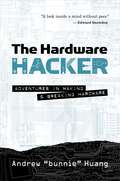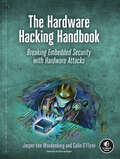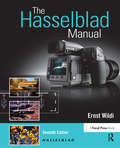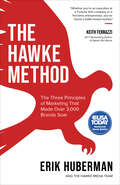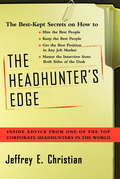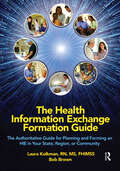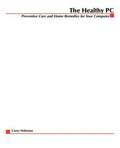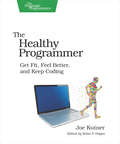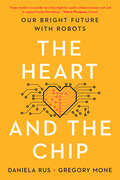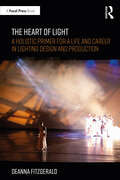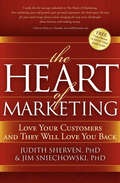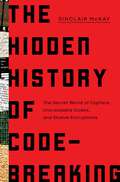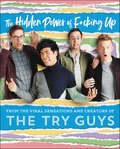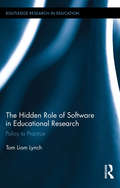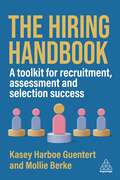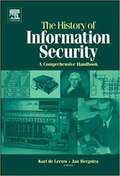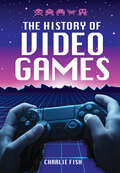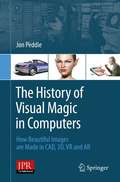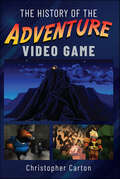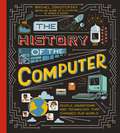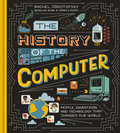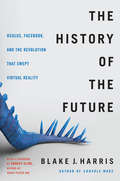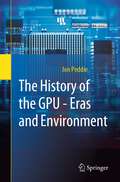- Table View
- List View
The Hardware Hacker Adventures in Making and Breaking Hardware
by Andrew Bunnie" HuangFor over a decade, Andrew "bunnie" Huang, one of the world's most esteemed hackers, has shaped the fields of hacking and hardware, from his cult-classic book Hacking the Xbox to the open-source laptop Novena and his mentorship of various hardware startups and developers. In The Hardware Hacker, Huang shares his experiences in manufacturing and open hardware, creating an illuminating and compelling career retrospective. Huang's journey starts with his first visit to the staggering electronics markets in Shenzhen, with booths overflowing with capacitors, memory chips, voltmeters, and possibility. He shares how he navigated the overwhelming world of Chinese factories to bring chumby, Novena, and Chibitronics to life, covering everything from creating a Bill of Materials to choosing the factory to best fit his needs. Through this collection of personal essays and interviews on topics ranging from the legality of reverse engineering to a comparison of intellectual property practices between China and the United States, bunnie weaves engineering, law, and society into the tapestry of open hardware. With highly detailed passages on the ins and outs of manufacturing and a comprehensive take on the issues associated with open source hardware, The Hardware Hacker is an invaluable resource for aspiring hackers and makers.
The Hardware Hacking Handbook: Breaking Embedded Security with Hardware Attacks
by Colin O'Flynn Jasper van WoudenbergThe Hardware Hacking Handbook takes you deep inside embedded devices to show how different kinds of attacks work, then guides you through each hack on real hardware.Embedded devices are chip-size microcomputers small enough to be included in the structure of the object they control, and they&’re everywhere—in phones, cars, credit cards, laptops, medical equipment, even critical infrastructure. This means understanding their security is critical. The Hardware Hacking Handbook takes you deep inside different types of embedded systems, revealing the designs, components, security limits, and reverse-engineering challenges you need to know for executing effective hardware attacks.Written with wit and infused with hands-on lab experiments, this handbook puts you in the role of an attacker interested in breaking security to do good. Starting with a crash course on the architecture of embedded devices, threat modeling, and attack trees, you&’ll go on to explore hardware interfaces, ports and communication protocols, electrical signaling, tips for analyzing firmware images, and more. Along the way, you&’ll use a home testing lab to perform fault-injection, side-channel (SCA), and simple and differential power analysis (SPA/DPA) attacks on a variety of real devices, such as a crypto wallet. The authors also share insights into real-life attacks on embedded systems, including Sony&’s PlayStation 3, the Xbox 360, and Philips Hue lights, and provide an appendix of the equipment needed for your hardware hacking lab – like a multimeter and an oscilloscope – with options for every type of budget. You&’ll learn: • How to model security threats, using attacker profiles, assets, objectives, and countermeasures • Electrical basics that will help you understand communication interfaces, signaling, and measurement • How to identify injection points for executing clock, voltage, electromagnetic, laser, and body-biasing fault attacks, as well as practical injection tips • How to use timing and power analysis attacks to extract passwords and cryptographic keys • Techniques for leveling up both simple and differential power analysis, from practical measurement tips to filtering, processing, and visualizationWhether you&’re an industry engineer tasked with understanding these attacks, a student starting out in the field, or an electronics hobbyist curious about replicating existing work, The Hardware Hacking Handbook is an indispensable resource – one you&’ll always want to have onhand.
The Haskell School of Expression
by Paul HudakFunctional programming is a style of programming that emphasizes the use of functions (in contrast to object-oriented programming, which emphasizes the use of objects). It has become popular in recent years because of its simplicity, conciseness, and clarity. This book, first published in 2000, teaches functional programming as a way of thinking and problem solving, using Haskell, the most popular purely functional language. Rather than using the conventional (boring) mathematical examples commonly found in other programming language textbooks, the author uses examples drawn from multimedia applications, including graphics, animation, and computer music, thus rewarding the reader with working programs for inherently more interesting applications. Aimed at both beginning and advanced programmers, this tutorial begins with a gentle introduction to functional programming and moves rapidly on to more advanced topics. Details about progamming in Haskell are presented in boxes throughout the text so they can be easily found and referred to.
The Haskell School of Music: From Signals to Symphonies
by Paul Hudak Donya QuickThis book explores the fundamentals of computer music and functional programming through the Haskell programming language. Functional programming is typically considered difficult to learn. This introduction in the context of creating music will allow students and professionals with a musical inclination to leverage their experience to help understand concepts that might be intimidating in more traditional computer science settings. Conversely, the book opens the door for programmers to interact with music by using a medium that is familiar to them. Readers will learn how to use the Euterpea library for Haskell (http://www.euterpea.com) to represent and create their own music with code, without the need for other music software. The book explores common paradigms used in algorithmic music composition, such as stochastic generation, musical grammars, self-similarity, and real-time interactive systems. Other topics covered include the basics of signal-based systems in Haskell, sound synthesis, and virtual instrument design.
The Hasselblad Manual: A Comprehensive Guide To The System
by Ernst WildiDiscover the great advantages and benefits of working in the medium film format or with the large digital sensor units in Hasselblad digital cameras and digital backs. Presented in an easily accessible format, this book shows the working and manipulation of the various cameras. Detailed illustrations dissect the equipment and provide insight into the ways in which these superb cameras and lenses are best utilized to create professional quality images. This edition of the Manual will bring you up to date with the latest features available within the popular Hasselblad camera systems emphasizing that camera and lens are the most important tools for creating exciting images whether you work digitally or with film. The complete Hasselblad camera system is discussed by renowned author and Hasselblad insider, Ernst Wildi, who provides a solid foundation of both traditional photography and digital capture techniques. Inside you'll also find inspiring photographs from well-known photographers, illustrating a variety of photographic techniques using a Hasselblad camera.
The Hawke Method: The Three Principles of Marketing that Made Over 3,000 Brands Soar
by Erik Huberman Hawke Media TeamThe USA Today bestseller. &“Whether you&’re an executive at a Fortune 500 company or a first-time entrepreneur, you&’ve found a battle-tested mentor.&” —Keith Ferrazzi, New York Times-bestselling author of Never Eat Alone Ever wonder how the biggest brands in the world make it to the top? Here&’s a hint: it&’s more than just a well-placed billboard or a TV ad. According to Erik Huberman, the Founder and CEO of Hawke Media, there&’s a common framework behind every successful marketing strategy. After helping over 3,000 brands find success through his holistic approach, Erik has distilled the art of marketing into three core elements: awareness, nurturing, and trust. Without all three, the system fails. From fledgling students to seasoned industry veterans, anyone can gain from the shrewd strategies in The Hawke Method. And use them to fly above the competition. &“[Huberman&’s] knowledge and positive energy are a recipe for success in the world of e-commerce.&” —Bennett Sherman, Digital Ventures &“Simply put, Erik is a marketing and business god. He knows how to make a product or idea go big and has proven it with his team.&” —Ben Parr, author of Captivology &“Erik is a true visionary. The world would be a far better place if more business leaders started moving to his beat.&” —Andre Benjamin, aka Andre 3000 of Outkast &“Erik is the living embodiment of entrepreneurship. He seeks out opportunity while simultaneously empowering those around him.&” —Robyn Ward, head of New Media Ventures at United Talent Agency &“Huberman is a dynamic, uber-talented entrepreneur . . . illuminating the path to innovation, radical service, and win-win relationships.&” —Christopher Kai, bestselling author of Big Game Hunting
The Headhunter's Edge: Inside Advice From One of the Top Corporate Headhunters in the World
by Jeffrey E. ChristianOne of the world’s top headhunters reveals his most valuable techniques for getting the best jobs and finding the right people.The most important thing you’ll ever do if you are trying to build, rebuild, or even turn around an organization is hire the best people—and keep them. Jeffrey E. Christian has learned this lesson by working on hundreds of executive search assignments and building his own headhunting firm into a nationally recognized company, one of the top ten in the nation. In The Headhunter’s Edge, he reveals his secrets for excelling on either side of the desk—as a leader trying to build a great company, or as a job seeker in search of the next big position. In this practical manifesto, Christian shows how essential it is to have the most talented people on your side. But how do you find the best? And how do you become the best? Christian’s solution: Think like a headhunter. He gives readers the benefits of his twenty years of experience interviewing thousands of CEOs and potential CEOs, and tells you• how to conduct an interview and spot great leadership qualities in job candidates• exactly what to do and say to keep a valuable employee from resigning • how to expand your network to find the best emerging talent• key strategies and instructions for choosing and getting the most out of a search firm• what it takes for ambitious and talented people to get noticed and get the next big job or promotionPractical, impassioned, and wise, The Headhunter’s Edge is an indispensable guide to advancing your career—and making your business more successful and profitable.
The Health Information Exchange Formation Guide: The Authoritative Guide for Planning and Forming an HIE in Your State, Region or Community (HIMSS Book Series)
by Bob Brown Laura KolkmanWinner of HIMSS 2011 Book of the Year Award!The HIMSS Book of the Year Award honors a book that offers outstanding practical guidance and/or strategic insight for healthcare information and management systems professionals. "The electronic exchange of health information is an essential capability that contributes to improved efficiency and patient outcomes in the healthcare delivery process. This book provides readers with the tools and resources needed to establish a successful, sustainable HIE and avoid many of the pitfalls that failed early initiatives. The authors use their own direct experience as HIE consultants, their interviews with HIE leaders and extensive research to offer a practical, step-by-step approach to forming an HIE. The book features case studies, examples, checklists, references, a high-level history and overview of HIE and a discussion of why HIE is so important. The book also describes in detail the essential steps to planning and forming a successful HIE. By providing the necessary tools and framework, the book serves to advance the successful development of HIEs and improve efficiency and outcomes in the healthcare delivery process. During a time of unprecedented change in the healthcare landscape, this guide is a timely and valuable resource for those seeking to leverage HIE to achieve quality gains and billions of dollars in saving under healthcare reform."
The Healthy PC: Preventive Care and Home Remedies for Your Computer
by Robert J. Shimonski Carey HolzmanLearn routine maintenance as well as desktop basics, hard drive care and defragmentation, and plenty more to make your PC more efficient and keep it running smoothly. Learn software management, tame the Internet, secure your machine, deal with downloads, and much more.
The Healthy Programmer: Get Fit, Feel Better, and Keep Coding
by Joe KutnerPrinted in full color.To keep doing what you love, you need to maintain your own systems, not just the ones you write code for. Regular exercise and proper nutrition help you learn, remember, concentrate, and be creative--skills critical to doing your job well. Learn how to change your work habits, master exercises that make working at a computer more comfortable, and develop a plan to keep fit, healthy, and sharp for years to come.Small changes to your habits can improve your health--without getting in the way of your work. The Healthy Programmer gives you a daily plan of action that's incremental and iterative just like the software development processes you're used to. Every tip, trick, and best practice is backed up by the advice of doctors, scientists, therapists, nutritionists, and numerous fitness experts.We'll review the latest scientific research to understand how being healthy is good for your body and mind. You'll start by adding a small amount of simple activity to your day--no trips to the gym needed. You'll learn how to mitigate back pain, carpal tunnel syndrome, headaches, and many other common sources of pain. You'll also learn how to refactor your diet to properly fuel your body without gaining weight or feeling hungry. Then, you'll turn the exercises and activities into a pragmatic workout methodology that doesn't interfere with the demands of your job and may actually improve your cognitive skills.You'll also learn the secrets of prominent figures in the software community who turned their health around by making diet and exercise changes. Throughout, you'll track your progress with a "companion iPhone app".Finally, you'll learn how to make your healthy lifestyle pragmatic, attainable, and fun. If you're going to live well, you should enjoy it.DisclaimerThis book is intended only as an informative guide for those wishing to know more about health issues. In no way is this book intended to replace, countermand, or conflict with the advice given to you by your own healthcare provider including Physician, Nurse Practitioner, Physician Assistant, Registered Dietician, and other licensed professionals.Keep in mind that results vary from person to person. This book is not intended as a substitute for medical or nutritional advice from a healthcare provider or dietician. Some people have a medical history and/or condition and/or nutritional requirements that warrant individualized recommendations and, in some cases, medications and healthcare surveillance. Do not start, stop, or change medication and dietary recommendations without professional medical and/or Registered Dietician advice. A healthcare provider should be consulted if you are on medication or if there are any symptoms that may require diagnosis or medical attention. Do not change your diet if you are ill, or on medication except under the supervision of a healthcare provider. Neither this, nor any other book or discussion forum is intended to take the place of personalized medical care of treatment provided by your healthcare provider.This book was current as of January, 2013 and as new information becomes available through research, experience, or changes to product contents, some of the data in this book may become invalid. You should seek the most up to date information on your medical care and treatment from your health care professional. The ultimate decision concerning care should be made between you and your healthcare provider.Information in this book is general and is offered with no guarantees on the part of the author, editor or The Pragmatic Programmers, LLC. The author, editors and publisher disclaim all liability in connection with the use of this book.
The Heart and the Chip: Our Bright Future with Robots
by Gregory Mone Daniela Rus“Urges readers to consider how they might be used to enhance human work and to support human flourishing.” —Valerie Thompson, Science Daniela Rus, a leading roboticist and computer scientist, explores how we can use a new generation of smart machines to help humankind. There is a robotics revolution underway. A record 3.1 million robots are working in factories right now, doing everything from assembling computers to packing goods and monitoring air quality and performance. A far greater number of smart machines impact our lives in countless other ways—improving the precision of surgeons, cleaning our homes, extending our reach to distant worlds—and we’re on the cusp of even more exciting opportunities. In The Heart and the Chip, roboticist Daniela Rus and science writer Gregory Mone provide an overview of the interconnected fields of robotics, artificial intelligence, and machine learning, and reframe the way we think about intelligent machines while weighing the moral and ethical consequences of their role in society. Robots aren’t going to steal our jobs: they’re going to make us more capable, productive, and precise. At once optimistic and realistic, Rus and Mone envision a world in which these technologies augment and enhance our skills and talents, both as individuals and as a species—a world in which the proliferation of robots allows us all to be more human.
The Heart of Light: A Holistic Primer for a Life and Career in Lighting Design and Production
by Deanna FitzgeraldThe Heart of Light: A Holistic Primer for a Life and Career in Lighting Design and Production is a fresh look into the ever-evolving fields of lighting design and technology for arts and entertainment. Full of practical information, historic perspectives, engaging projects, and opportunities for deep inquiry, practice, and reflection, this book offers a well-rounded foundation in the art, technology, and industries of light. It explores a wide range of topics, including: how to observe, communicate about, and use light effectively how quietive practices can deepen the creative process current lighting equipment used across the various arts and entertainment industries and strategies for keeping up with its rapid innovation how to choose a career path that keeps you inspired, as well as ways to search for work with dos and don’ts of effective career building how to cope with and celebrate the unknown and related challenges of implementing a design under pressure considerations for using self-reflection to be successful and impact positive change From her perspective of lighting designer, educator, and contemplative practitioner, the author explores lighting not just as subject, but as an invitation to a fulfilling lifelong adventure. Written for students of Theatrical Lighting courses and emerging lighting professionals, The Heart of Light is a must-read for anyone intrigued by the power of light.
The Heart of Marketing: Love Your Customers and They Will Love You Back
by Judith Sherven Jim Sniechowski&“This book will radically boost your sales. Feeling good about yourself afterwards will just be a nice side effect&” (Mark Joyner, author of The Irresistible Offer). This book is about marketing. But more important, this is a book about you, the soft sell marketer—and your desire to market and sell your products and services, online or off, without compromising your personal or professional values. In short, it&’s about putting your heart into marketing. Based on the principle that selling is spiritual service, this book validates the power of heart-to-heart connections that lead to emotional authenticity and marketing believability, taking sales beyond mere commercial transactions into long-term customer relationships. For those who want to focus on integrity, avoid deceptive or hard-sell tactics, and maintain a balance between commerce and conscience, it will inspire the imagination—setting the foundation for you to understand and profit from the practice of soft sell marketing.
The Hidden History of Code-Breaking: The Secret World of Cyphers, Uncrackable Codes, and Elusive Encryptions
by Sinclair McKayA fascinating exploration of the uncrackable codes and secret cyphers that helped win wars, spark revolutions and change the faces of nations.There have been secret codes since before the Old Testament, and there were secret codes in the Old Testament, too. Almost as soon as writing was invented, so too were the devious means to hide messages and keep them under the wraps of secrecy. In The Hidden History of Code Breaking, Sinclair McKay explores these uncrackable codes, secret ciphers, and hidden messages from across time to tell a new history of a secret world. From the temples of Ancient Greece to the court of Elizabeth I; from antique manuscripts whose codes might hold prophecies of doom to the modern realm of quantum mechanics, we will see how a few concealed words could help to win wars, spark revolutions and even change the faces of great nations. Here is the complete guide to the hidden world of codebreaking, with opportunities for you to see if you could have cracked some of the trickiest puzzles and lip-chewing codes ever created.
The Hidden Power of F*cking Up
by The Try Guys Keith Habersberger Zach Kornfeld Eugene Lee Yang#1 NEW YORK TIMES BESTSELLERThe Try Guys deliver their first book—an inspirational self-improvement guide that teaches you that the path to success is littered with humiliating detours, embarrassing mistakes, and unexpected failures.To be our best selves, we must become secure in our insecurities. In The Hidden Power of F*cking Up, The Try Guys - Keith, Ned, Zach, and Eugene - reveal their philosophy of trying: how to fully embrace fear, foolishness, and embarrassment in an effort to understand how we all get paralyzed by a fear of failure. They’ll share how four shy, nerdy kids have dealt with their most poignant life struggles by attacking them head-on and reveal their - ahem - sure-fail strategies for achieving success.But they’re not just here to talk; they’re actually going to put their advice to work. To demonstrate their unique self-improvement formula, they’ll each personally confront their deepest insecurities. A die-hard meat-lover goes vegan for the first time. A straight-laced father transforms into a fashionista. A perpetually single sidekick becomes the romantic lead. A child of divorce finally grows more intimate with his family. Through their insightful, emotional journeys and surprising, hilarious anecdotes, they’ll help you overcome your own self-doubt to become the best, most f*cked up version of yourself you can be!
The Hidden Role of Software in Educational Research: Policy to Practice (Routledge Research in Education #143)
by Tom Liam LynchEducational research often discounts the uniqueness and ubiquity of software and the hidden political, economic and epistemological ways it impacts teaching and learning in K-12 settings. Drawing on theories and methodologies from English education, critical discourse analysis, multimodal semiotics and digital humanities, this volume exposes the problems of technology in schools and refocuses the conversation on software. This shifting of focus invites more nuanced questions concerning the role of software in school reform and classroom instruction, and takes a critical stance on software’s role in education. This volume explores the ontology of software and the ways it is construed within educational policy discussions. It is beneficial to schools, companies, policy makers and practitioners seeking a more theoretical framework for technology in education.
The Hiring Handbook: A Toolkit for Recruitment, Assessment, and Selection Success
by Kasey Harboe Guentert Mollie BerkeHow can I improve the quality of my hires? What's the best way to structure interviews and how can I ensure that the questions I ask provide the information I need? How can I make sure that hiring decisions are based on data and not judgements?The Hiring Handbook is a must-have guide for HR professionals, managers and small business owners looking to hire with confidence. This practical toolkit walks you through every stage of the hiring process-from defining job requirements to designing structured interviews-so you can consistently identify and select the best candidates.It covers how to conduct job analyses to pinpoint the skills and attributes that truly matter, write compelling job descriptions that attract top talent, and design structured interviews that lead to fair and accurate hiring decisions. The book also explains how to craft strong, predictive interview questions, evaluate candidates objectively, and minimize bias by adopting a data-driven approach to hiring. Written by hiring experts with deep assessment and selection expertise from global firms like Korn Ferry, Airbnb, and Meta, The Hiring Handbook equips you with the tools to build high-performing teams and make hiring decisions that drive long-term success.
The History of Information Security: A Comprehensive Handbook
by Karl Maria Michael De Leeuw Jan BergstraInformation Security is usually achieved through a mix of technical, organizational and legal measures. These may include the application of cryptography, the hierarchical modeling of organizations in order to assure confidentiality, or the distribution of accountability and responsibility by law, among interested parties. <p><p> The history of Information Security reaches back to ancient times and starts with the emergence of bureaucracy in administration and warfare. Some aspects, such as the interception of encrypted messages during World War II, have attracted huge attention, whereas other aspects have remained largely uncovered. <p><p>There has never been any effort to write a comprehensive history. This is most unfortunate, because Information Security should be perceived as a set of communicating vessels, where technical innovations can make existing legal or organisational frame-works obsolete and a breakdown of political authority may cause an exclusive reliance on technical means. <p><p> This book is intended as a first field-survey. It consists of twenty-eight contributions, written by experts in such diverse fields as computer science, law, or history and political science, dealing with episodes, organisations and technical developments that may considered to be exemplary or have played a key role in the development of this field. <p><p> These include: the emergence of cryptology as a discipline during the Renaissance, the Black Chambers in 18th century Europe, the breaking of German military codes during World War II, the histories of the NSA and its Soviet counterparts and contemporary cryptology. <p><p>Other subjects are: computer security standards, viruses and worms on the Internet, computer transparency and free software, computer crime, export regulations for encryption software and the privacy debate. <p><p> - Interdisciplinary coverage of the history Information Security<p> - Written by top experts in law, history, computer and information science<p> - First comprehensive work in Information Security
The History of Video Games
by Charlie FishThis book is a potted history of video games, telling all the rollercoaster stories of this fascinating young industry that’s now twice as big globally than the film and music industries combined. Each chapter explores the history of video games through a different lens, giving a uniquely well-rounded overview. Packed with pictures and stats, this book is for video gamers nostalgic for the good old days of gaming, and young gamers curious about how it all began. If you’ve ever enjoyed a video game, or you just want to see what all the fuss is about, this book is for you. There are stories about the experimental games of the 1950s and 1960s; the advent of home gaming in the 1970s; the explosion – and implosion – of arcade gaming in the 1980s; the console wars of the 1990s; the growth of online and mobile games in the 2000s; and we get right up to date with the 2010s, including such cultural phenomena as twitch.tv, the Gamergate scandal, and Fortnite. But rather than telling the whole story from beginning to end, each chapter covers the history of video games from a different angle: platforms and technology, people and personalities, companies and capitalism, gender and representation, culture, community, and finally the games themselves.
The History of Visual Magic in Computers
by Jon PeddieIf you have ever looked at a fantastic adventure or science fiction movie, or an amazingly complex and rich computer game, or a TV commercial where cars or gas pumps or biscuits behaved liked people and wondered, "How do they do that?", then you've experienced the magic of 3D worlds generated by a computer. 3D in computers began as a way to represent automotive designs and illustrate the construction of molecules. 3D graphics use evolved to visualizations of simulated data and artistic representations of imaginary worlds. In order to overcome the processing limitations of the computer, graphics had to exploit the characteristics of the eye and brain, and develop visual tricks to simulate realism. The goal is to create graphics images that will overcome the visual cues that cause disbelief and tell the viewer this is not real. Thousands of people over thousands of years have developed the building blocks and made the discoveries in mathematics and science to make such 3D magic possible, and The History of Visual Magic in Computers is dedicated to all of them and tells a little of their story. It traces the earliest understanding of 3D and then foundational mathematics to explain and construct 3D; from mechanical computers up to today's tablets. Several of the amazing computer graphics algorithms and tricks came of periods where eruptions of new ideas and techniques seem to occur all at once. Applications emerged as the fundamentals of how to draw lines and create realistic images were better understood, leading to hardware 3D controllers that drive the display all the way to stereovision and virtual reality.
The History of the Adventure Video Game
by Christopher CartonDiscover the origins of adventure gaming, from their origins in the 70s to modern day. Get ready for the adventure of a lifetime! Adventure video games have provided players with epic and hilarious storytelling for over fifty years. What started from the humble beginnings of text adventures led to a blast of point-and-click and graphic adventure games throughout the ‘80s and ‘90s. Trailblazers like Roberta and Ken Williams, Ron Gilbert, Tim Schaffer and Dave Grossman brought timeless characters, stories and puzzles to life, lighting the imaginations and wracking the brains of gamers around the world. This book showcases the companies, games and creators that have made the adventure video game one of the most passionately-adored genres in the medium. In these pages you’ll find histories on influential companies such as Sierra On-Line, LucasArts and Telltale Games, as well as some of the most revered games in the genre. With a bright future emerging as veterans and newcomers forge ahead with new ideas and visual flourishes for adventure games, there’s never been a better time to become acquainted (or reacquainted!) with a colorful and exciting part of gaming history. So point your cursor over the start button and click that mouse!
The History of the Computer: People, Inventions, And Technology That Changed Our World
by Rachel IgnotofskyExplore the fascinating history of the computer, and the people who made them, in this beautifully illustrated guide for children by bestselling author and illustrator Rachel Ignotofsky.Computers make our lives easier in so many ways - they help us do our work, get directions, check the weather, exercise, shop and understand what's happening around the world. But who created them, and why? How have they transformed the way we interact with our surroundings and each other?Packed with accessible information, fun facts and discussion starters, this charmingly illustrated book takes you from the ancient world to the modern day, focusing on important inventions from the earliest known counting systems (such as the Incan quipu) to the sophisticated algorithms behind AI, space travel and wearable tech. The History of the Computer also profiles a global and diverse range of key players and creators - from An Wang and Margaret Hamilton to Steve Jobs and Tim Berners-Lee - and illuminates their goals, their intentions and the impact of their inventions on our everyday lives.This entertaining and educational journey from the bestselling author of Women in Science will help you understand our most important machines and how we can use them to enhance the way we live. You'll never look at your phone the same way again!
The History of the Computer: People, Inventions, and Technology that Changed Our World
by Rachel IgnotofskyA strikingly illustrated overview of the computing machines that have changed our world—from the abacus to the smartphone—and the people who made them, by the New York Times bestselling author and illustrator of Women in Science.Computers are everywhere and have impacted our lives in so many ways. But who created them, and why? How have they transformed the way that we interact with our surroundings and each other?Packed with accessible information, fun facts, and discussion starters, this charming and art-filled book takes you from the ancient world to the modern day, focusing on important inventions, from the earliest known counting systems to the sophisticated algorithms behind AI. The History of the Computer also profiles a diverse range of key players and creators—from An Wang and Margaret Hamilton to Steve Jobs and Sir Tim Berners-Lee—and illuminates their goals, their intentions, and the impact of their inventions on our everyday lives. This entertaining and educational journey will help you understand our most important machines and how we can use them to enhance the way we live. You&’ll never look at your phone the same way again!
The History of the Future: Oculus, Facebook, and the Revolution That Swept Virtual Reality
by Blake J. HarrisThe author of Console Wars reveals the story behind Oculus and its quest for virtual reality: “Masterful . . . filled with unforgettable characters” (Forbes).From iconic books like Neuromancer to blockbuster films like The Matrix, virtual reality has offered a tantalizing vision of the future. But outside of a few research labs and military training facilities, this technology was mere science fiction. Until 2012, when Oculus founder Palmer Luckey—then just a teenage dreamer living alone in a camper trailer—invents a device that has the potential to change the world.With the help of a videogame legend, a serial entrepreneur, and many other colorful characters, Luckey’s scrappy startup kickstarts a revolution and sets out to bring VR to the masses. What follows is the ultimate entrepreneurial journey, a tale of battles won and lost, lessons learned and shocking turns—including an unlikely multi-billion-dollar acquisition by Facebook’s Mark Zuckerberg.Drawing on over a hundred interviews with the key players driving this revolution, The History of the Future weaves together a rich, cinematic narrative that captures the breakthroughs, breakdowns, and human drama of trying to change the world. The result is a supremely entertaining look at the birth of a game-changing new industry.
The History of the GPU - Eras and Environment
by Jon PeddieThis is the second book in a three-part series that traces the development of the GPU, which is defined as a single chip with an integrated transform and lighting (T&L) capability. This feature previously was found in workstations as a stand-alone chip that only performed geometry functions. Enabled by Moore’s law, the first era of GPUs began in the late 1990s.Silicon Graphics (SGI) introduced T&L first in 1996 with the Nintendo 64 chipset with integrated T&L but didn’t follow through. ArtX developed a chipset with integrated T&L but didn’t bring it to market until November 1999.The need to integrate the transform and lighting functions in the graphics controller was well understood and strongly desired by dozens of companies. Nvidia was the first to produce a PC consumer level single chip with T&L in October 1999. All in all, fifteen companies came close, they had designs and experience, but one thing or another got in their way to prevent them succeeding.All the forces and technology were converging; the GPU was ready to emerge. Several of the companies involved did produce an integrated GPU, but not until early 2000. This is the account of those companies, the GPU and the environment needed to support it. The GPU has become ubiquitous and can be found in every platform that involves a computer and a user interface.
